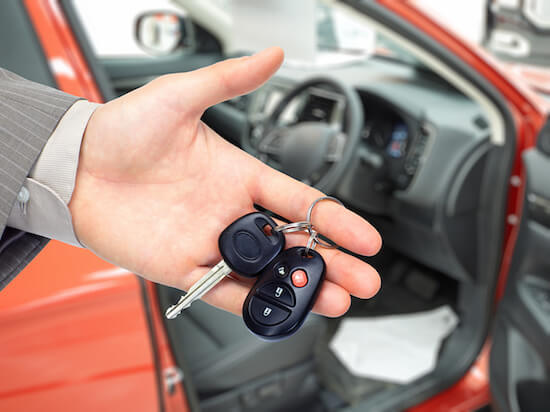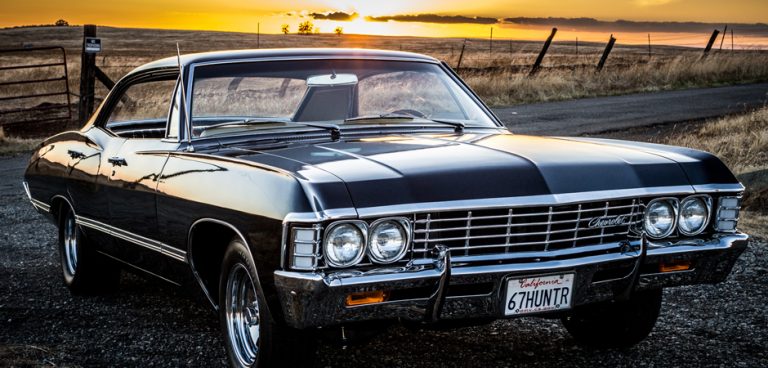Car Title Signed But Never Transferred: What To Do?
Navigating the complexities of car ownership can be tricky, especially if you’ve signed over the title but the buyer never completed the transfer. This situation can lead to unexpected legal and financial problems. In this post, we’ll guide you through the steps you should take to protect yourself and resolve the issue efficiently. From contacting the buyer to reaching out to your local DMV, we’ll cover all the essential actions to ensure your peace of mind and safeguard your interests.

What Does “Car Title Signed But Never Transferred” Mean?
When a car title is “signed but never transferred,” it means that the legal ownership of the vehicle has not been properly updated to reflect a change in ownership. This typically occurs in the context of buying or selling a car, where the seller signs off on the title to release their ownership but the buyer fails to complete their part of the process by registering the title under their name with the appropriate motor vehicle department.
Here are a few scenarios and consequences related to this issue:
-
Legal Ownership Confusion: The car is still legally registered to the seller even though they no longer possess it. This can lead to legal complications, especially if the new owner incurs fines, parking tickets, or is involved in accidents.
-
Financial Liability: The seller might still be held responsible for any legal or financial issues arising from the vehicle because, according to government records, they are still the owner.
-
Registration and Insurance Problems: The buyer might face problems with insurance and may not be able to legally drive the car if the vehicle is not registered under their name.
-
Title Jumping: Sometimes, individuals intentionally avoid transferring the title to evade taxes or hide the vehicle’s history in what is known as title jumping, which is illegal.
Car Title Signed But Never Transferred: What To Do?
If you find yourself in a situation where a car title was signed but never transferred, it’s important to address the issue promptly to avoid potential legal and financial problems. Here are the steps you should take:
1. Contact the Buyer
Reach out to the buyer directly to remind them of their obligation to complete the title transfer. Often, the buyer may have simply forgotten or been unaware of the steps involved. It’s helpful to provide them with detailed instructions or a link to the relevant DMV page. If possible, arrange a meeting to facilitate the transfer together, ensuring all paperwork is correctly filed.
2. Verify with the DMV
Check with your local Department of Motor Vehicles (DMV) to confirm whether the title transfer was completed. The DMV can provide the current registration status and advise on any discrepancies in their records. If the title has not been transferred, the DMV can guide you on the necessary steps to protect yourself from liabilities associated with the vehicle.
3. Submit a Notice of Transfer
If the buyer remains unresponsive or unwilling to complete the transfer, submit a Notice of Transfer and Release of Liability form to the DMV. This form officially records that you have sold the vehicle and absolves you from future liabilities. Make sure to provide all required details like the sale date, buyer’s information, and vehicle specifics.
4. Keep Records
Maintain thorough records of all transactions and communications regarding the sale. This includes copies of the signed title, sale receipts, and any emails or messages exchanged with the buyer. These documents are vital in proving the transaction occurred and in protecting yourself in case of disputes or legal issues down the line.
5. Consult with an Attorney

If resolving the issue amicably with the buyer proves difficult and potential liabilities become a concern, consulting with an attorney who specializes in automotive or contract law might be necessary. An attorney can offer legal advice tailored to your situation and help initiate further legal action if required to ensure the title transfer is completed and liabilities are appropriately managed.
Why Might a Buyer Not Transfer Your Old Car’s Title?
There are a couple of reasons why a buyer might not transfer the title of your old car after you’ve sold it to them:

1. Avoiding Registration Fees and Costs: Some buyers, especially for older cars, might be trying to avoid paying registration fees, transfer taxes, or other associated costs with registering the vehicle in their name. They might think they can keep using the car with the existing registration under your name. This is a bad idea for both parties, as you’ll remain legally responsible (and liable for any fines or accidents).
2. Dodging Tickets and Penalties: In some cases, the buyer might be hoping to avoid having parking tickets, speeding fines, or other traffic violations linked back to them. By keeping the car registered in your name, they believe they can escape these consequences. This is another risky tactic, and you could end up facing these charges.
3. Lack of Knowledge or Disorganization: Not everyone is familiar with vehicle ownership transfer procedures. Especially for first-time car buyers, they might simply not understand that they need to register the car in their name or be unaware of the process involved.
4. Deliberate Misconduct (Less Common): In rare cases, the buyer might be intentionally trying to commit fraud. They could be planning to scrap the car for parts and not wanting a traceable record, or even hoping to sell the car to someone else without a proper transfer.
Frequently Asked Questions
What are the potential legal issues if I sell my car but the title isn’t transferred accurately?
If a car title isn’t properly transferred, the seller can potentially be held legally liable for any issues that arise with the vehicle. This includes unpaid parking tickets, traffic violations, and other legal discrepancies tied to the vehicle’s VIN.
What is “title jumping” as it relates to selling a car?
Title jumping, also known as title skipping or floating, refers to the illegal act of buying a vehicle, not registering it under one’s name, but then selling it. This act can lead to significant complications for the new owner attempting to register the vehicle.
Who is responsible for registering the vehicle after a sale?
The responsibility of registering the vehicle falls primarily on the buyer. This should be done as soon as possible after the sale to prevent potential complications, such as accumulated taxes under the original owner’s name or legal repercussions.
As a seller, how can I protect myself during the title transfer process?
To protect yourself as a seller, make sure to fill out a bill of sale and an odometer declaration. It’s also important to familiarize yourself with the local and state laws governing car sales. These measures can help ensure a smooth title transfer process and minimize potential legal risks.
What happens if a new owner fails to register a car after purchase?
If a new owner fails to register a car, it can lead to a variety of repercussions. For example, the original title will still stand, meaning any future parking tickets or camera-tied infractions will be under the original owner’s name. It can also result in taxes accumulating under the original owner’s name.

Hi! I’m Larry Gibbs, studying mechanical engineering with a focus on cars. I really love Ferraris and write blog posts about the latest car stuff. When not studying or blogging, I’m usually on a road trip exploring new places. I also enjoy playing football and watching movies. Life’s an adventure, and I’m all about enjoying the ride!






